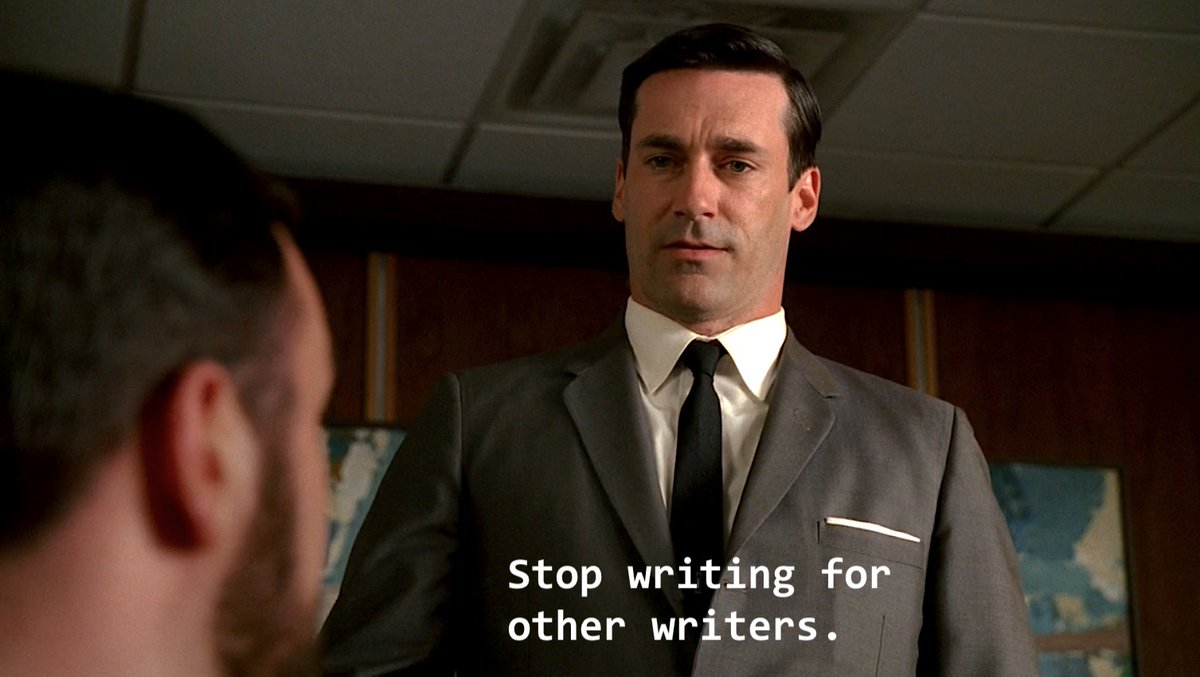In an ever-changing marketing landscape, one thing remains a constant reality. Words are what sell. Good writing is what motivates your readers and calls them to action. Too often, this vital marketing skill is overlooked. In the content marketing community, we’re always sharing how to stay ahead of the curve, and how to keep up with the rapid development of search engines.
This is important, but we mustn’t lose sight of the heart of content marketing – the content. To put it crassly, you can’t polish a turd. No matter where you’re placing your content – on a sales page, on social media, or a blog post – you need to make sure you’re making the most of the space you’re given.
Don’t use your text block for a rephrased Lorem Ipsum in the hopes that your CTA microcopy will do the legwork. You need to warm your reader up before you call them to action.
“Too many writers are trying to write with too shallow an education.”
— James Kisner, Good Advice on Writing
It all starts with the reader.
Here’s some harsh writing advice from Mad Men’s Don Draper:

“Stop writing for other writers”, he advises. Don’t lose sight of the audience. Too often we writers will write for ourselves, our colleagues and our peers. If you’re prone to this, revisit your audience personas work – or create them if you haven’t already!
Your audience persona data should tell you what your audience or audiences use your product or service for, and what problem it solves. It should also have information about their lifestyle and what their values are, so that you can speak to them. It helps you put a face to your audience. This will help the quality of your writing.
Another way to improve the quality of your writing is to revisit the very basics. Don’t feel ashamed of doing this. Even the most accomplished writers have to polish on the basics, or the reason they are so accomplished is that they have the basics down.
Why writing?
When you get right down to it, what are we doing when we write? Well, we’re trying to get someone to do something. It might be trying to help them understand a product better, get more value out of it, or buy it from us. We may be trying to get them to vote for a certain candidate, or we may be trying to get them to donate to a cause. In all of these cases, our goal is to get the desired action from someone. When you look at it like this, it becomes clear that written communication is the most powerful tool in your marketing toolkit. In an increasingly digital world, it’s impossible to ignore the importance of written communication. Social media posts and emails are written, and even your headlines and ad copy are written. When we put all of these together, we can see that written communication is the core of all of your marketing efforts.
It’s not just about SEO and ad copy
At the core of all marketing activity is one core activity: connecting with your audience. To do this, we have to share our message with potential customers in whatever way works best for them. In the days of print marketing and advertising, this meant creating ads, brochures, and other content that would run in newspapers, magazines, and TV. These days, it means creating content that lives online and gets shared through social media and email. As content marketers, we have a huge advantage over our print-focused predecessors. Unlike print, content can be repurposed, distributed, and syndicated in ways that were never before possible. You don’t have to create a newspaper ad daily or a TV commercial every week; you can share your content online, on the platform where your audience lives and interacts.
It’s also an opportunity to understand your audience
The best way to truly understand your audience is to become your audience. By writing in your own voice, you have the opportunity to truly understand what your customers are looking for and what they need from you. This insight provides the foundation to create content that resonates with your customers. With traditional marketing, you have a general sense of who your audience is and what they want from you. You know that they are interested in your product or service and are of a certain age, gender, or other demographic. You know that they use a certain type of device and come from a specific socioeconomic bracket. But you don’t truly understand what their needs are beyond your product. This is why many marketing efforts fail to drive the desired results.
Here are some fundamentals for good copy:
- Using the active voice. If you want to be a trusted, respected authority in your industry, you need to communicate clearly and directly. Using the passive voice often sounds wishy-washy and decreases trust. Using the active voice shows transparency.
- Writing concisely. Conciseness is vital, especially when writing in a space that has small website real estate – for example, the ‘before-the-fold’ content on your homepage. Conciseness gives your writing more impact to make an impression on your reader.
- Writing clearly. The ‘stop writing for other writers’ theory also works here because you can’t assume your audience will understand what you’re saying. This doesn’t mean your audience lacks intelligence – it’s your responsibility to communicate your offering clearly. Make sure you answer more questions than you raise. Anticipate your user’s needs. Put yourself in their shoes and imagine what they would want to know. Addressing commonly googled questions is a good strategy, but going a step further to anticipate related questions they may have will put you one step ahead of your competitors.
- Making your words a magnet tar pit trap. Okay, I borrowed this phrase from Kurt Cobain. The point is that the particular words you use need to draw your audience irresistibly to your content and to your product. Audience research comes into this to narrow this language to what resonates with them, but there are some universals. These are called ‘trigger words’, and are best documented by CoSchedule.
In the end, all we have is words. Use them wisely.


